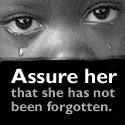I have a tendency to view the world in an unconventional manner. I heard about a book coming out called ‘Imaginary Jesus ’ by Matt Mikalatos and was intrigued. I wasn’t familiar with Matt at the time, but the title of the book got my attention! And I like his occupation, as listed on his Blogger Profile – Strategic Coordinator for World Domination.
’ by Matt Mikalatos and was intrigued. I wasn’t familiar with Matt at the time, but the title of the book got my attention! And I like his occupation, as listed on his Blogger Profile – Strategic Coordinator for World Domination.
Here is the description of ‘Imaginary Jesus ’ from the back of the book:
’ from the back of the book:
In this hilarious, rapid-fire, sort-of-true story, author Matt Mikalatos takes you on a wild ride through time, space, and Portland, Oregon in his quest to find the real Jesus, destroy all imposters who stand in his way…and finally get an answer to the question that’s haunted him for years.
Here is the trailer for the book:
A hilarious book about Jesus? I am there! I am sure that God has a great sense of humor and obviously loves laughter!
A hilarious book about Jesus? I am there! I am sure that God has a great sense of humor and obviously loves laughter!
The main character in this novel is Matt Mikalatos. Hey, he wrote the book, he can give himself the starring role! He lives in Portland Oregon with his wife, Krista and his daughters. He is eating with a fellow named Jesus at the Red and Black Café. A gruff character joins them; his name is Pete and he claims to be the apostle Peter. Pete tells Matt that this Jesus of his is not the real Jesus.
I found this book to be laugh-out-loud funny. Here’s an example – when Matt and Pete head back to first century Judea and encounter a talking donkey named Daisy:
“I assumed that Daisy would be a, uh, person.”
The donkey snorted. “Well, you know what assuming does. Look, you’re going to be back in Portland soon, Matt, so you don’t have much time. You need to walk into the synagogue over there, because Y’shua is about to give a speech. Pete wants you to see it.” (p. 26)
Yes, that Y’shua!
Later on, when Matt saw Y’shua again, he describes Him:
“That’s not how Jesus really looked, is it?”
“Humans all look the same to me. Does it matter?” [this is Daisy the donkey speaking]
“I’m not sure,” I said. In fact, it disturbed me deeply. Jesus shouldn’t be an ugly twisted man. He should be compelling, beautiful, and charismatic. He should look like a president. He should look like JFK in a robe. He should look like my imaginary Jesus. (p. 38)
Back in Portland, Matt, Daisy, Pete, and a former prostitute turned Jesus follower named Sandy go looking for the real Jesus. On their excellent adventure, they run into the Secret Society of Imaginary Jesuses: Magic 8 Ball Jesus, King James Jesus, Testosterone Jesus, Bargain Jesus, Conservative Truth-Telling Jesus, Political Jesus, Hippie/Peacenik Jesus, etc... – all of the Imaginary Jesuses that we construct in our minds to fit our particular mindsets and situations, to make Him fit into our lives, not to allow Him to live out His life in us.
Matt even ran into George Barna, the famous researcher. Mr. Barna had this to share with Matt:
“Listen,” George said. “The core belief of Christianity has to do with this spectacular moment when Jesus overcomes death by the power of his resurrection, and he shows that he is God when he rises from the dead. If God doesn’t care about our suffering, why would he be in the process of repairing the world? Jesus said that he came into the world so we could have life, abundant life. He’s not a God of the dead, but of the living. You’re at a vulnerable place right now, Matt, where you’re more susceptible to imaginary Jesuses. You’re window shopping. You need to stop and look at these Jesuses carefully. Test them. Question them. The real Jesus isn’t afraid of your questions. The truth is our friend. That’s why I do my research, so we can look at what’s really happening in the church and society instead of what’s we wish was happening. Jesus called himself the truth, as I’m sure you know. The way, the truth, and the light.” (pp. 137-138)
I have never read a book quite like this. Those in the ‘religious’ crowd definitely need to read it with an open mind. Not only is it funny, but it is solid biblically. Matt brings up a lot of important theological issues, including the Trinity, the inerrancy of scripture, justice, the supremacy of Jesus Christ and so much more. He also makes so many good points, such as the fact that we drown out the still small voice of God with the static of the world’s noise and that we often overlook our everyday blessings. I think ‘Imaginary Jesus ’ will end up being a classic, and I look forward to more books from Matt Mikalatos!
’ will end up being a classic, and I look forward to more books from Matt Mikalatos!
You can order this book here .
.
This book was provided to me by Tyndale House Publishers for review purposes.



























.jpg)

